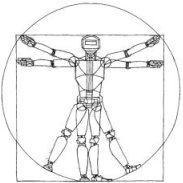Robotics: Science and Systems XVII
Active Learning of Abstract Plan Feasibility
Michael Noseworthy*, Isaiah Brand*, Caris Moses*, Sebastian Castro, Leslie Kaelbling, Tomas Lozano-Perez, Nicholas Roy* These authors contributed equally
Abstract:
Long horizon sequential manipulation tasks are effectively addressed hierarchically: at a high level of abstraction the planner searches over abstract action sequences; and when a plan is found; lower level motion plans are generated. Such a strategy hinges on the ability to reliably predict that a feasible low level plan will be found which satisfies the abstract plan. However; computing Abstract Plan Feasibility (APF) is difficult because the outcome of a plan depends on complex real-world phenomena that are computationally costly to model; such as noise in estimation and plan execution. In this work; we present an active learning approach to efficiently acquire an APF predictor through curious exploration on a robot. The robot identifies plans whose outcomes would be informative about APF; executes those plans; and learns from their subsequent successes or failures. We evaluate our strategy in simulation and on a real Franka Emika Panda robot with integrated perception; experimentation; planning; and execution. In a stacking domain where objects have non-uniform mass distributions; we show that our system permits real-robot learning of an APF model in four hundred self-supervised interactions; and that our learned model can be used effectively in different downstream tasks (e.g.; constructing the tallest tower or tower with the longest overhang).
Bibtex:
@INPROCEEDINGS{NoseworthyBrandMoses-RSS-21,
AUTHOR = {Michael Noseworthy AND Isaiah Brand AND Caris Moses AND Sebastian Castro AND Leslie Kaelbling AND Tomas Lozano-Perez AND Nicholas Roy},
TITLE = {{Active Learning of Abstract Plan Feasibility}},
BOOKTITLE = {Proceedings of Robotics: Science and Systems},
YEAR = {2021},
ADDRESS = {Virtual},
MONTH = {July},
DOI = {10.15607/RSS.2021.XVII.043}
}
